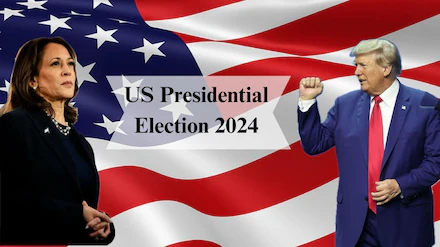As the U.S. presidential election approaches, Israeli leaders are watching closely, knowing the outcome could significantly impact Israel’s ongoing conflicts in Gaza, Lebanon, and with Iran. Both major candidates—Vice President Kamala Harris and former President Donald Trump—are expected to push for a resolution in the Middle East, but their approaches differ sharply.
The Biden Administration’s Current Stance
In recent days, the Biden administration has intensified diplomatic efforts to calm the situation in Gaza and Lebanon. If Harris wins, her administration is expected to maintain this direction, potentially encouraging Israel to limit military actions and prioritize humanitarian aid in Gaza. This approach has garnered mixed reactions within Israel, as Prime Minister Netanyahu and his allies are largely in favor of a more aggressive policy.
“I don’t see him [Netanyahu] rushing for a deal until the election,” said Nadav Shtrauchler, a former strategist for Netanyahu’s campaign, noting that Netanyahu is likely to await election results to decide on any major deals.
A Clear Preference for Trump Among Israeli Conservatives
Netanyahu and members of Israel’s conservative Likud party, such as lawmaker Tally Gotliv, have shown a preference for Trump’s leadership. They believe Trump would offer Israel more freedom in its military actions without the threat of U.S. constraints. Unlike Harris, Trump is anticipated to back Israel’s decisions more unconditionally, potentially supporting increased measures in Gaza and the West Bank.
Key Differences in Conflict Resolution Approaches
Ceasefire Terms: Both candidates seek an end to violence in Gaza and Lebanon but differ in the terms they would pursue. Harris is likely to press for conditions that ensure humanitarian aid and limit territorial changes in Gaza. In contrast, Trump might be more lenient with Israel, allowing it to pursue punitive actions, like altering Gaza’s borders in response to the October 7 Hamas-led attack on Israel.
West Bank Annexation: The possibility of Israel’s annexing parts of the West Bank could become more feasible under a Trump administration. Trump’s former ambassador to Israel, David Friedman, has advocated for such a move. Harris, on the other hand, would likely oppose annexation, favoring negotiations aimed at establishing an independent Palestinian state.
Perspectives from Palestinian Analysts
While Palestinians have low expectations for any drastic improvements regardless of who is elected, analysts like Ibrahim Dalalsha, of the Horizon Center in Ramallah, suggest Harris might lean toward a strategy of “smarter conflict management.” This approach would not necessarily mean significant U.S. intervention but rather more cautious, diplomatic pressure on Israel to maintain stability.
“Trump and Harris are ‘the same thing. Nothing will change,’” said Aladin Abu Haseira, a Palestinian man in Gaza, expressing the pervasive pessimism among Palestinians regarding U.S. involvement.
The Question of Iran
The next president’s stance on Iran will be crucial. Following a recent Israeli bombing of Iran’s air defenses, there is heated debate in Israel over whether it should launch a full-scale attack on Iran’s nuclear facilities. Such an operation would require U.S. support, which Netanyahu believes he would more likely receive under a Trump administration.
“Halting Iran’s nuclear program remains our chief concern,” Netanyahu stated, expressing his determination to prevent any nuclear threat from Iran.
In Netanyahu’s eyes, dealing a decisive blow to Iran could be his lasting legacy. According to his former adviser Shtrauchler, Netanyahu believes he would have more strategic flexibility to pursue this objective under Trump’s leadership, though he would also seek ways to cooperate with Harris if she were elected.
Conclusion
The next U.S. president will face complex choices that will affect Israel’s conflicts and the broader Middle East landscape. While Harris may take a diplomatic, regulated approach, Trump would likely offer Israel the freedom to pursue its military and territorial ambitions more aggressively. For Israel, Palestinians, and the broader region, the 2024 U.S. election could shape the future course of peace and stability in the Middle East.




